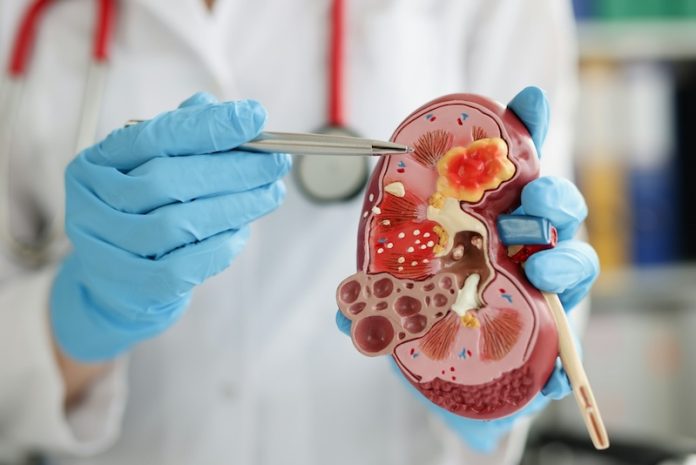
Chronic kidney disease (CKD) is a widespread health problem affecting millions of people worldwide. Despite its prevalence, the exact reasons why the kidneys continue to suffer damage over time have been unclear.
Now, a new study from Boston University’s Chobanian & Avedisian School of Medicine sheds light on the process and identifies a promising target for future treatments.
The key discovery centers around a gene called TMIGD1, which plays a protective role in kidney health. Dr. Vipul Chitalia, the lead author of the study, highlights the significance of the finding, calling it a groundbreaking step in understanding the link between TMIGD1 and kidney failure.
In their research, scientists used cellular and experimental models to observe what happens when the TMIGD1 gene is not functioning properly. They found that inactivating this gene made the kidneys more vulnerable to damage.
Moreover, the study showed how toxins that accumulate in the body during CKD further worsen kidney function by affecting the TMIGD1 gene.
This discovery has important implications for treating CKD. According to Dr. Wenqing Yin, a co-author of the study, TMIGD1 could serve as both a therapeutic target and a screening tool for detecting kidney damage.
By focusing on this gene, researchers hope to develop new treatments and preventive strategies that could slow or even stop the progression of CKD. This is particularly important for preventing end-stage kidney disease, where patients often require dialysis or a kidney transplant.
The findings also suggest the potential for better early detection methods. Screening for TMIGD1-related changes in the kidneys could allow doctors to intervene earlier, before the disease reaches a critical stage.
While much work remains to be done, this discovery offers new hope for millions of people living with CKD. The research represents a major step forward in understanding how kidney damage progresses and opens the door to innovative treatments that could improve the lives of patients around the world.
The study was published in the Journal of Neuroinflammation and marks an exciting development in the fight against kidney disease.
If you care about stroke, please read studies about how to eat to prevent stroke, and diets high in flavonoids could help reduce stroke risk.
For more information about health, please see recent studies about how Mediterranean diet could protect your brain health, and wild blueberries can benefit your heart and brain.
Copyright © 2025 Knowridge Science Report. All rights reserved.



